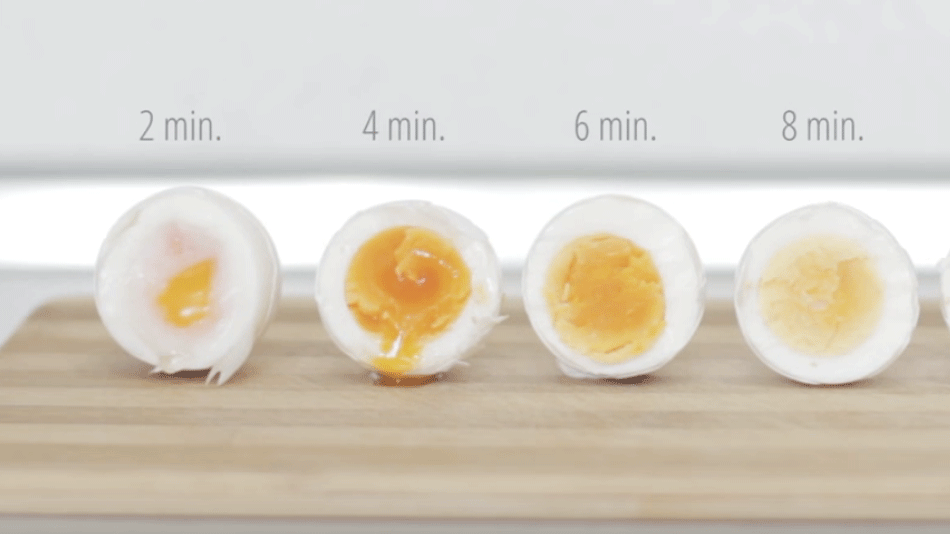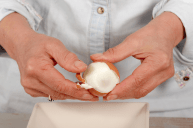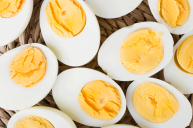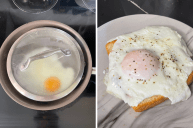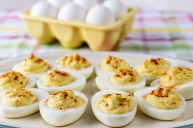There is nothing like slicing into a perfectly cooked soft boiled egg. Firm whites on the outside and just enough runny yolk on the inside, they're a staple every home cook should have on the menu. They pair beautifully with salads, are a must with ramen, and are delicious all by their lonesome. Not being much of big breakfast eater myself, I typically rely on a couple soft boiled eggs to power me through the morning.
Cooking them to perfection, however, can be a challenge. And that really goes for any egg. Whether you like your boiled eggs super runny for toast dipping or prefer them hard boiled for a an egg salad, cooking them just right can be tricky. Dunking them in water at the wrong time, boiling too long, and ditching the ice bath can result in less than stellar eggs.
That's why Mr. Hacker is here to guide you on your egg boiling. Whether you're looking for a two minute egg or a ten minute egg, following Mr. Hacker's tips will allow you to not be disappointed when you slice into your egg and find it too runny or too firm. From two to ten minutes, you'll notice how the yolk scale goes from runny to firm.
Another trick I've learned is to drop the eggs into room temperature water just like Mr. Hacker, but then remove the egg from the heat once it reaches boiling. I cover and let it sit for exactly five minutes. What this does is allow the egg to continue cooking as the water temperature drops - meaning I won't wind up with hard boiled instead of soft boiled. And with the time set to five minutes I get the jammy yolk consistency I'm looking for.
Oh, and don't forget the ice bath! By dropping your boiled eggs into an ice bath you will shock the eggs and maintain the desired yolk consistency you worked so hard to achieve. Let the eggs rest in the ice bath and then you can begin peeling.
If you find peeling the most challenging part of the process, you're not alone. Sometimes those perfectly cooked eggs don't want to part from their shell. If that's the case, here's a little piece of advise, choose your older eggs for boiling and leave the fresh eggs for all other cooking methods. Older eggs are much easier to peel. If you're boiling for deviled eggs, this will especially come in handy if you want them to look picture perfect. And there's something about a picture perfect egg that simply tastes better.
